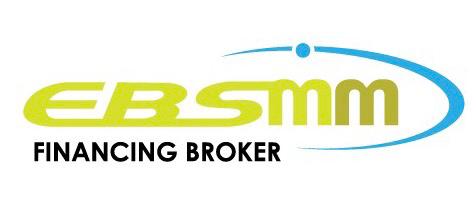PROPERTY MORTGAGE

EBS provides mortgage services which helps you to turn your dream into a reality. We offer a wide variety of mortgage programs to help meet your financing needs for both purchases and refinancing. We can help you finance your primary residence, second home, investment property, vehicles, and equipment’s. Our team, links in the market and relations with the financial institutions will enable you to get the desired loan in no time.
1. A mortgage is a loan in which property or real estate is used as collateral. The borrower enters into an agreement with the lender (usually a bank) wherein the borrower receives cash upfront then makes payments over a set time span until he pays back the lender in full.
A debt instrument, secured by the collateral of specified real estate property, that the borrower is obliged to pay back with a predetermined set of payments. Mortgages are used by individuals and businesses to make large real estate purchases without paying the entire value of the purchase up front. Over a period of many years, the borrower repays the loan, plus interest, until he/she eventually owns the property free and clear. Mortgages are also known as “liens against property” or “claims on property.” If the borrower stops paying the mortgage, the bank can foreclose.
In a residential mortgage, a home buyer pledges his or her house to the bank. The bank has a claim on the house should the home buyer default on paying the mortgage. In the case of a foreclosure, the bank may evict the home’s tenants and sell the house, using the income from the sale to clear the mortgage debt Mortgages come in many forms. With a fixed-rate mortgage, the borrower pays the same interest rate for the life of the loan. Her monthly principal and interest payment never change from the first mortgage payment to the last. Most fixed-rate mortgages have a 15- or 30-year term. If market interest rates rise, the borrower’s payment does not change. If market interest rates drop significantly, the borrower may be able to secure that lower rate by refinancing the mortgage. A fixed-rate mortgage is also called a “traditional” mortgage.
A mortgage loan, also referred to as a mortgage, is used by purchasers of real property to raise money to buy the property to be purchased or by existing property owners to raise funds for any purpose. The loan is “secured” on the borrower’s property. This means that a legal mechanism is put in place which allows the lender to take possession and sell the secured property (“foreclosure” or “repossession”) to pay off the loan in the event that the borrower defaults on the loan or otherwise fails to abide by its terms. The word mortgage is derived from a “law French” term used by English lawyers in the Middle Ages meaning “death pledge”, and refers to the pledge ending (dying) when either the obligation is fulfilled or the property is taken through foreclosure.[1]
Mortgage borrowers can be individuals mortgaging their home or they can be businesses mortgaging commercial property (for example, their own business premises, residential property let to tenants or an investment portfolio). The lender will typically be a financial institution, such as a bank, credit union or building society, depending on the country concerned, and the loan arrangements can be made either directly or indirectly through intermediaries. Features of mortgage loans such as the size of the loan, maturity of the loan, interest rate, method of paying off the loan, and other characteristics can vary considerably. The lender’s rights over the secured property take priority over the borrower’s other creditors which means that if the borrower becomes bankrupt or insolvent, the other creditors will only be repaid the debts owed to them from a sale of the secured property if the mortgage lender is repaid in full first.
In many jurisdictions, though not all (Bali, Indonesia being one exception[2]), it is normal for home purchases to be funded by a mortgage loan. Few individuals have enough savings or liquid funds to enable them to purchase property outright. In countries where the demand for home ownership is highest, strong domestic markets for mortgages have developed.
A loan to finance the purchase of real-estate, usually with specified payment periods and interest rates. The borrower (mortgagor) gives the lender (mortgagee) a lien on the property as collateral for the loan. The mortgagor’s lien on the property expires when the mortgage is paid off in full.
